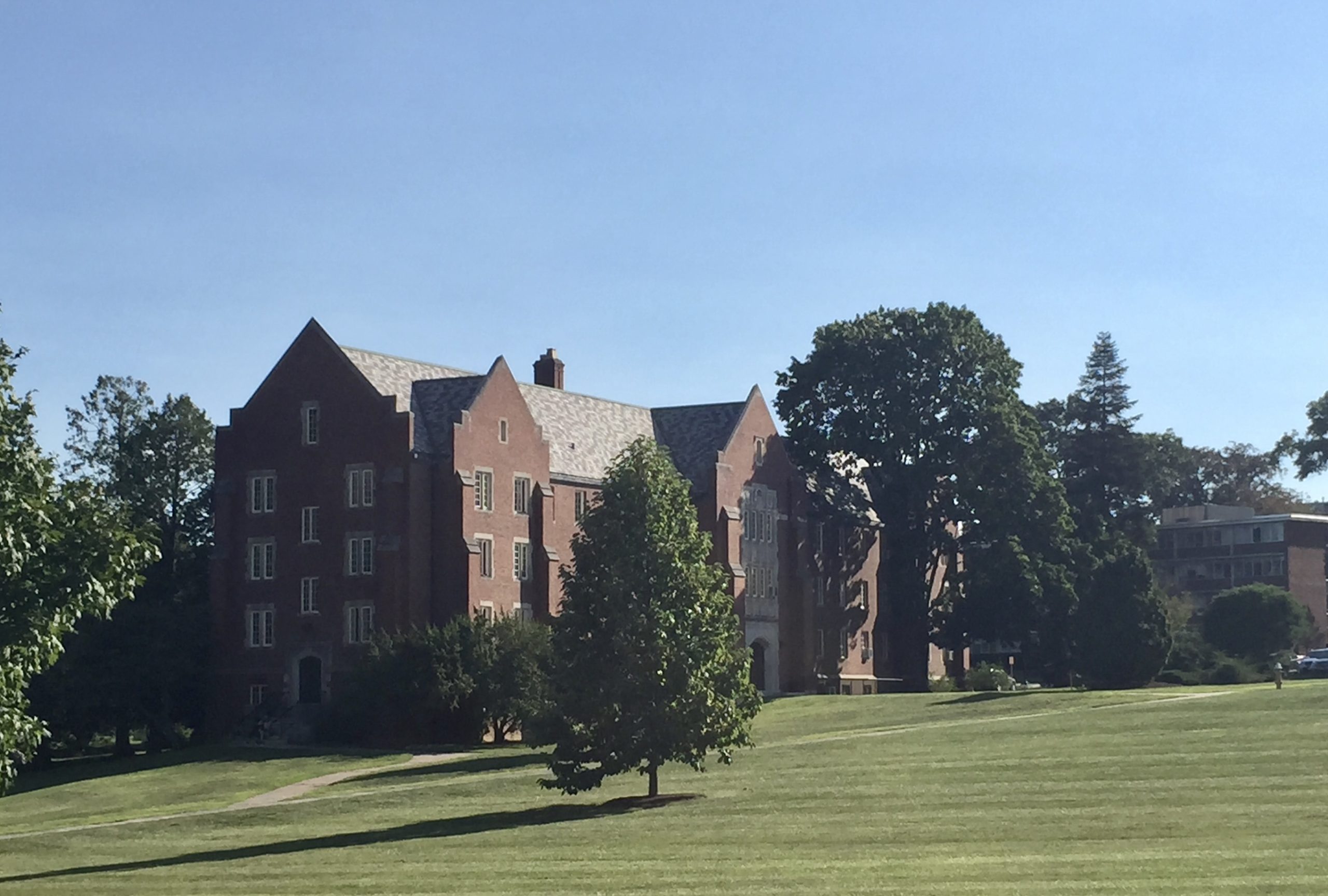College Bound: Accommodations for Disabled Students

Audio By Carbonatix

Photo credit: Ronni Newton (we-ha.com file photo)
We-Ha.com will be publishing a series of essays/blogs/reflections on the issue of going to college – primarily a set of thoughts and musings, along with some practical advice, intended to support students and parents as they embark on this journey. While many of our readers are experts in this topic, many others are less knowledgeable and have little outside support. We hope this is helpful to all readers as they go through the various stages of getting into and getting something out of college.

Adrienne Leinwand Maslin. Courtesy photo
By Adrienne Leinwand Maslin
If you are a disabled student preparing to head off to college, or the parent of a disabled student who will soon be attending college, it is important that you understand your rights and responsibilities under the Americans with Disabilities Act if you wish to receive accommodations.
The purpose of accommodations is to provide all students with the opportunity to participate in academic and extracurricular programs equally. Accommodations do not guarantee success; rather they guarantee access to the full range of learning, extracurricular activities, and living situations just as other students have.
It is your responsibility to inform the college that you need accommodations and to provide the institution with the necessary documentation that indicates the nature of your disability. At some colleges, students must repeat this process each semester or each year. Students are not required to use their accommodations for every course or even for every class session of the same course. But, it is important for students to be proactive in letting their professors know that they are entitled to receive accommodations. The disability services office at your college generally will not do this for you.
Students who do not require accommodations often wonder whether those who do ultimately have an advantage. What they see is that some students get extra time on tests, have someone take notes for them, or are given preferential seating. But such accommodations, and the others I will mention below, are only to level the playing field; to help those whose disabilities make it difficult for them to learn in the typical ways. “They do not,” according to the Center for Accessible Education (CAE) at the University of California Los Angeles (UCLA), “reduce learning expectations and should not give a false picture of what a student knows and can do.”
There are a wide variety of accommodations for students who need them. The variety, of course, corresponds to the wide variety of disabilities that exist and the special need of the student who has that disability. Even students who are disabled in the same way do not always need the same accommodation due to their own personal skills, abilities, and preferences.
So, what are the accommodations that might be provided? This list will surely not be exhaustive but it will give you a general idea of what you can expect to receive if you need an accommodation or what you might observe others receiving even if you don’t.
According to UCLA’s Center for Accessible Education, accommodations are generally grouped into the following categories:
- Presentation accommodations present instruction or assessment in an alternate format. Some examples include American Sign Language, captioning, assistive technology devices, Braille, large print, or a reader.
- Response accommodations allow students to complete assignments or exams in different ways (e.g., use of reference aids, clicker, use of computer, etc.).
- Timing/Scheduling accommodations increase the allowable length of time to complete a test or assignment and may also change the way the time is organized (e.g., extended time, frequent breaks).
- Setting accommodations change the location in which a test or assignment is given or the conditions of the assessment setting (e.g., private exam room, distraction-reduced).
The list below of specific common accommodations was compiled by me from the websites of Elms College in Chicopee, MA; INCLUDEnyc, an organization devoted to supporting young people with disabilities in New York City; and Rutgers University in New Jersey:
- Extended time on assessments, e.g. quizzes, midterms, and final exams
- Testing in an alternative location
- Breaks during exams
- A note-taker, reader, and/or scribe
- Access to audiobooks
- American Sign Language interpreters
- Extended time for timed assessments
- Distraction-reduced testing environments
- Preferential in-class seating
- Priority registration
- Textbooks in alternate formats
- Extended time for independent work
- Closed-captioning and/or transcripts for audio course materials
- Assistive technology
Some accommodations might be more difficult to obtain:
- Extensions for specific assignments
- Alternate test format (e.g. multiple choice, true/false, essay)
- Tests and directions read out loud, or read and repeated
- Reduced course load and extended time to complete degree requirements
Other services might include several forms of assistive technology:
- Making audio recordings of classes
- Qualified interpreters
- Class materials in alternative formats, e.g. texts in Braille, recorded, or as digital files
- Access to voice recognition software
- Access to text-to-speech programs
- Regular meetings with an accessibility counselor/learning specialist
- Alternate ways to evaluate, e.g. projects or oral presentations instead of written tests (https://www.elms.edu/academics/center-for-student-success/sass/; https://includenyc.org/help-center/resources/college-accommodations-for-students-with-disabilities/; https://ods.rutgers.edu/students/common-accommodations).
Elms College also provides a list of non-academic accommodations that may include such things as:
- Residential needs (e.g. dormitory assignment, emotional support animals, etc.)
- Dietary needs/restrictions (e.g. gluten intolerance, tree-nut allergy, etc.)
- Campus activities/events (e.g. interpreter, closed captioning, transcripts, etc.)
- Alternate on-campus parking permit
Two important things to know: 1) accommodations are not retroactive. If you are entitled to accommodations but choose not to use them and subsequently receive a poor grade in a course, you cannot later claim that you should have received accommodations and are, therefore, entitled to receive some form of compensation from the college. 2) Students who are entitled to and receive accommodations do not have to pay anything extra for them.
Another helpful website is Students with Disabilities Preparing for Postsecondary Education: Know Your Rights and Responsibilities: https://www2.ed.gov/about/offices/list/ocr/transition.html.
Adrienne Leinwand Maslin recently retired from a 45-year career in higher education administration. She has worked at public and private institutions, urban and rural, large and small, and two-year and four-year, and is Dean Emerita at CT State-Middlesex. She has held positions in admissions, affirmative action, president’s office, human resources, academic affairs, and student affairs. Adrienne has a BA from the University of Vermont, an MEd from Boston University, and a PhD from the University of Oregon. She is presently writing a series of graphic novels on life skills and social issues for 8-12 year olds believing that the more familiar youngsters are with important social issues the easier their transition to college and adulthood will be. Information about this series as well as contact information can be found at www.adrienneleinwandmaslin.com.
Like what you see here? Click here to subscribe to We-Ha’s newsletter so you’ll always be in the know about what’s happening in West Hartford! Click the blue button below to become a supporter of We-Ha.com and our efforts to continue producing quality journalism.



